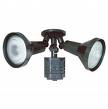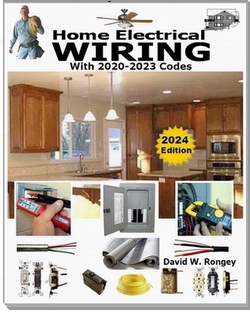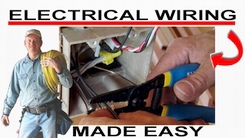Questions about Wiring a Workshop
How to Install a Panel for a Welder
How should I Install a Panel in my Workshop for a Welder? How to Plan Your Garage or Workshop Electrical Wiring, Selecting the Type and Size Panel for a Workshop, Example of Properly Sizing a Workshop Panel.
Convert Existing Electric Circuit Wiring
Can I convert the circuit wiring in my shop to be used for different equipment? Converting Existing Circuit Wiring in a Workshop or Garage.
Wire a Vacuum System for Workshop Tools
How to Wire an Automatic Vacuum Control for Shop Tools: Power Tools and a Shop Vac or a House Vacuum System, Automating a Whole House Vacuum System for Shop Tools
Installing Electrical Outlets in a Garage Workshop
How many electric outlets can I have on the same circuit? Installing Circuit Wiring for Outlets in a Workshop Garage.
Garage Electrical Wiring On a Concrete Wall
Does garage electrical wiring have to be protected with conduit? How to Install Garage Electrical Wiring on a Concrete Wall, Methods for Installing Electrical Conduit for Surface Mounted Electric Wiring.
Question from Ken in Granite Shoals, Texas:
What size wire is needed for Wiring Workshop Lights and Outlets?
I’m putting up a metal building workshop and wiring for 110volts. I’m planning to run a light circuit and a circuit for smaller electrical tools, both 15 amp circuits. What size wire is needed to run 40 ft. from main panel to the junction box? What size breaker at main panel? Can wiring be exposed Romex or does have to be in conduit?
Dave’s Answer:
Electrical Wiring for a Workshop
I would highly encourage you to consider installing a sub panel in the new workshop that will have enough amperage capacity for your planned electrical circuit loads, and any possible future equipment that may be added. Once the workshop calculated loads have been established the size of the sub panel may be known. The wire size for the workshop sub panel will depend on the method used for the wiring, such as using an underground conduit or overhead wiring, and if copper or aluminum wire will be used. Consult the wire size calculator found on this website which will help you select the right wire size for the distance of the wire run. The workshop should not have exposed wiring, therefore it is best to protect the wiring by installing electrical conduit and metal boxes at each device location.
Installing Workshop Receptacles How Many Workshop Receptacles on a GFCI Circuit
Question from Bruce:
How many receptacles can I put down stream after a GFCI? I am running a 15 amp circuit in my new workshop with 12-2 wire.
This electrical question came from: Bruce, a Handyman from La Mesa, California.
Dave's reply:
Bruce, for a workshop application it will really depend on what the receptacles will be used for or what will be plugged into the receptacles. The other consideration is how many of these tools or devices will be operated at the same time. If these receptacles are for general purpose and conveniently located and the circuit load will be low then you can place as many as you wish, 10 or may be 12. The point is that you will be limited by the amperage of the circuit, not how many receptacles you actually have. I guess the easiest way to explain this is that just because you have 10 receptacles does not mean that there is a load on the circuit, that only happens once tools or equipment is plugged in and is being used. By the way, if 12-2 wire is being installed then the circuit breaker may be sized at 20 amps, not 15 amps.
Installing Workshop WiringShould I Install Electrical Conduit or Cable Wiring in my Workshop?
Question from Clyde:
I am about to start wiring my steel frame shop building for my 240 V air compressor, welders, and auto lift, plus assorted lights and outlets for power tools. Do I need to run all of the wiring through conduit or can I use Romex?
Dave's reply:
Clyde, If the finished walls will be open so that the wiring will be exposed then the electrical wiring will need to be installed in conduit to provide protection. However, if the walls will be finished off with a covering such as sheet rock that will provide protection for the wiring then Romex type cable may be installed as long as it is permissible in your area. Be sure to ask your local building department when you obtain your permit and they will inform you. |




















